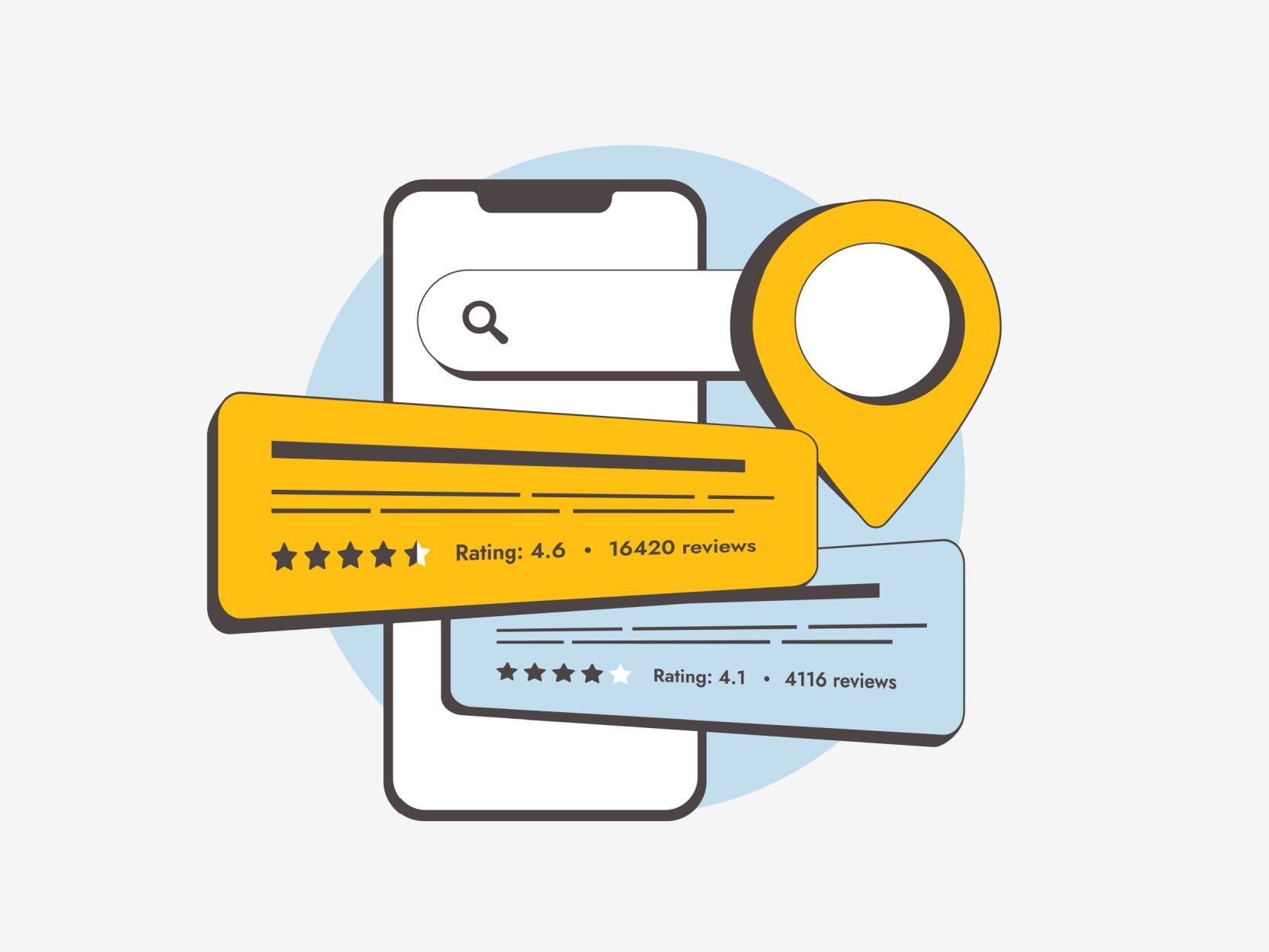5 Game-Changing SEO Strategies for B2B Businesses That Drive Quality Leads

Picture this: Your ideal client just realized they need your services. They open their laptop and search "best IT managed services provider" or "B2B marketing consultant near me." Will your business appear in those crucial first few results? Or will they find your competitor instead?
For B2B businesses, SEO isn't just about visibility, it's about connecting with decision-makers who have real budget authority and genuine purchasing intent. Unlike consumer searches, B2B buyers conduct extensive research, often visiting 5-7 websites before making contact. This means your SEO strategy must work harder to capture attention and build trust throughout a longer sales cycle.
The stakes are high. B2B sales typically involve larger contract values, longer relationships, and higher lifetime customer value. When your SEO works effectively, each new client can represent thousands or even millions in revenue. When it doesn't, those opportunities go to competitors who invested in their online presence.
This guide reveals five proven SEO strategies that B2B businesses use to dominate search results, attract qualified prospects, and convert more leads into high-value clients. Whether you're a SaaS company, consulting firm, manufacturing business, or professional services provider, these tactics will help you build a predictable pipeline of quality leads from organic search.
Why SEO is Critical for B2B Success
Before diving into strategies, let's examine why SEO matters so much for B2B companies.
The B2B buying process has fundamentally changed. Gartner research shows that B2B buyers spend only 17% of their purchase journey meeting with potential suppliers. The remaining 83% is spent researching independently online—reading content, comparing options, and building internal business cases.
This shift means your prospects are forming opinions about your company long before they ever contact you. If you're not visible during their research phase, you're not even considered as an option. Studies show that 71% of B2B buyers start their research with a generic Google search, and 90% of B2B buyers who are online use search specifically to research business purchases.
The businesses that appear in top search positions capture the majority of these high-intent prospects. First-page results receive 71% of search traffic clicks, while second-page results get less than 6%. For B2B companies, this visibility directly translates to qualified leads and closed deals.
1. Master B2B Local and Industry-Specific SEO
While B2B businesses often serve clients nationwide or globally, many still benefit significantly from local and industry-specific optimization. Decision-makers frequently prefer working with providers who understand their local market conditions, regulations, or business environment.
Optimize for Local B2B Searches
Little-known fact: 46% of all Google searches have local intent, and this includes B2B searches like "accounting firm in Denver" or "manufacturing consultant near Phoenix."
Start by creating a comprehensive Google Business Profile, even if you're primarily B2B. Include detailed information about your services, industries served, and professional credentials. Business buyers often research companies the same way consumers do—they want to see reviews, photos, and location information.
Target location-specific keywords that B2B buyers actually use:
- "[Your service] in [city]"
- "[Industry] consultant [location]"
- "Best [service] company [region]"
Create dedicated landing pages for each major market you serve. If you're a cybersecurity consultant serving both Atlanta and Nashville, build separate pages optimizing for "Atlanta cybersecurity consulting" and "Nashville IT security services."
Industry-Specific Optimization
B2B buyers search for providers who understand their specific industry challenges. Create content and optimize pages around industry-specific terms like:
- "Healthcare IT compliance solutions"
- "Manufacturing ERP implementation"
- "Financial services digital transformation"
List your business in industry-specific directories beyond general business listings:
- Trade association websites
- Industry publication directories
- Specialized B2B marketplaces (G2, Capterra for software companies)
- Professional service directories
2. Create Content That Speaks to B2B Decision-Makers
B2B content marketing requires a different approach than consumer content. Your audience consists of professionals researching solutions to complex business problems. They need depth, credibility, and clear ROI justification.
Address the B2B Buyer's Journey
Little-known fact: B2B buyers consume an average of 13 pieces of content before making a purchase decision, compared to 3-5 for consumer purchases.
Create content for each stage of the buyer's journey:
Awareness Stage Content:
- "Signs Your Business Needs [Your Solution]"
- "The True Cost of [Problem You Solve]"
- "Industry Benchmarking Reports"
- "Compliance Guide for [Specific Regulation]"
Consideration Stage Content:
- "Buyer's Guide to Choosing [Your Service Category]"
- "ROI Calculator for [Your Solution]"
- "Vendor Comparison Frameworks"
- "Implementation Timeline Templates"
Decision Stage Content:
- "Customer Success Stories and Case Studies"
- "Implementation Methodologies"
- "Service Level Agreement Templates"
- "Onboarding Process Overviews"
Include Keywords Naturally in Content
Your content must include the specific terms your Google Business Profile and service pages target. If you want to rank for "ERP implementation services," ensure this phrase appears naturally in your content, especially in headers and throughout the body text.
Use variations and related terms to create comprehensive coverage:
- Primary keyword in H1 tag: "ERP Implementation Services"
- Related keywords in H2 tags: "Enterprise Resource Planning Consulting," "Business Software Integration"
- Natural mentions throughout: "Our ERP implementation services help manufacturing companies streamline operations..."
Leverage Advanced Content Formats
B2B audiences appreciate detailed, professional content formats:
- Whitepapers and Research Reports: Position your company as a thought leader by publishing original research, industry surveys, or comprehensive guides.
- Interactive Tools: Build ROI calculators, assessment tools, or configuration wizards that provide immediate value while capturing leads.
- Video Content: Create executive interviews, solution demos, and client testimonials. Video content often ranks well and builds stronger connections with prospects.
- Webinar Series: Host educational sessions on industry topics, creating both live engagement and evergreen content.

3. Optimize Technical SEO for Professional Credibility
B2B buyers expect polished, professional websites that load quickly and function flawlessly. Technical issues don't just hurt rankings—they damage credibility with prospects who might question your ability to deliver quality services.
Speed Optimization for Business Users
Little-known fact: B2B users are 67% more likely to abandon a website that takes longer than 4 seconds to load, compared to consumer users who typically wait up to 6 seconds.
B2B decision-makers often access websites during busy workdays, frequently on mobile devices between meetings. Optimize aggressively for speed:
- Compress and optimize images: Use modern formats like WebP for faster loading
- Implement advanced caching: Set up server-side caching and content delivery networks (CDNs)
- Minimize code bloat: Remove unnecessary plugins, scripts, and design elements
- Prioritize mobile performance: Ensure mobile pages load under 3 seconds
Professional On-Page Optimization
Every page should reflect the professional quality B2B buyers expect:
Title Tags for B2B Searches:
- Include industry-specific keywords
- Mention credentials or specializations
- Keep under 60 characters
- Example: "SAP Implementation Consultants | Certified Partners | [Company]"
Meta Descriptions that Convert:
- Highlight specific expertise and results
- Include credibility indicators
- Stay under 155 characters
- Example: "Award-winning SAP consultants with 200+ successful implementations. Reduce project risk and accelerate ROI. Free consultation available."
Header Structure for Authority:
- Use H1 for primary service/solution
- H2 for benefits, process steps, or service categories
- H3 for specific features, tools, or case study details
- Include keywords naturally: "Manufacturing ERP Solutions" rather than generic "Our Solutions"
Schema Markup for B2B:
- Implement Organization schema for company information
- Use Service schema for specific offerings
- Add Review schema for client testimonials
- Include FAQ schema for common questions
4. Build Authority Through Strategic B2B Link Building
B2B link building focuses on establishing credibility and thought leadership within your industry. The goal isn't just any backlink—you need links from sources that B2B buyers trust and respect.
Industry Publication Strategy
Little-known fact: Links from industry-specific publications carry 3x more ranking weight for B2B searches than general business sites, according to specialized SEO studies.
Target publications that your prospects read regularly:
- Trade magazines and journals
- Industry association websites
- Professional conference sites
- B2B news publications
- Analyst firm websites (Gartner, Forrester, etc.)
Approach these publications with:
- Expert commentary on industry news and trends
- Original research or survey data they can cite
- Guest articles on emerging challenges in your field
- Speaking opportunities at industry events they cover
Thought Leadership Content
Create content that naturally attracts links from other B2B companies and industry sources:
- Original Research Studies: Conduct surveys within your industry and publish comprehensive reports. Other companies will link to your data when writing their own content.
- Industry Tools and Resources: Build free tools, templates, or calculators that provide genuine value. These often become go-to resources that earn consistent backlinks.
- Executive Insights: Publish CEO interviews, predictions, or strategic viewpoints on industry direction. Business publications often link to executive perspectives.
Strategic Partnership Links
Leverage business relationships for mutual linking opportunities:
- Technology partners: If you integrate with other platforms, pursue reciprocal links
- Client success stories: Many clients will link to case studies that showcase positive results
- Industry vendors: Suppliers and complementary service providers may link to partner pages
- Professional associations: Membership directories and sponsor pages provide valuable industry links
B2B-Specific Link Outreach
When reaching out for links, use a professional approach that resonates with business audiences:
- Lead with business value rather than SEO benefits
- Reference specific metrics or results when possible
- Offer to provide exclusive data or insights
- Suggest mutually beneficial content collaborations
5. Track B2B-Specific Metrics and Optimize for Revenue Impact
B2B SEO success isn't just about traffic—it's about generating qualified leads that convert to revenue. Your measurement approach must align with business objectives and sales cycles.
Advanced Lead Tracking
Little-known fact: B2B companies that track leads back to specific keywords and content pieces see 67% higher close rates because they can optimize for the highest-converting search terms.
Implement comprehensive tracking that connects SEO performance to business outcomes:
Multi-Touch Attribution: Use tools like HubSpot, Salesforce, or Marketo to track the complete customer journey from first search to closed deal.
Keyword-Level ROI Tracking: Identify which specific search terms drive the highest-value prospects and double down on optimization for those keywords.
Content Performance Analysis: Track which blog posts, whitepapers, and resources generate the most qualified leads, not just the most traffic.
Sales Cycle Influence: Measure how SEO-generated leads progress through your sales funnel compared to other sources.
B2B-Specific Metrics to Monitor
Focus on metrics that directly impact B2B success:
Lead Quality Metrics:
- Lead-to-opportunity conversion rate by traffic source
- Average deal size from organic search leads
- Sales cycle length for SEO-generated prospects
- Customer lifetime value by acquisition channel
Industry Authority Indicators:
- Share of voice for industry keywords
- Branded search volume growth
- Industry publication mentions and citations
- Speaking opportunity requests
Competitive Intelligence:
- Competitor keyword rankings for high-value terms
- Industry content gap analysis
- Backlink acquisition compared to key competitors
- Market share of organic search visibility
Tools for B2B SEO Success
Invest in enterprise-grade tools that support complex B2B measurement:
- SEMrush or Ahrefs: Comprehensive keyword and competitor analysis
- Google Analytics 4: Advanced conversion tracking and audience insights
- Search Console: Technical SEO monitoring and search performance data
- CallRail or similar: Phone call tracking and conversation analytics
- Marketing automation platforms: Lead scoring and attribution tracking

Bonus Tip: Boost Lead Nurturing with Email Marketing and Retargeting Ads
B2B sales cycles are often lengthy, which means staying top-of-mind is critical. Cost-effective channels like email marketing and retargeting display ads play a huge role in nurturing potential clients through every stage of the decision process.
By sending targeted email campaigns featuring valuable content, case studies, or industry news, you can keep your brand in front of decision-makers as they weigh their options. Retargeting display ads served to recent site visitors or users with similar intent provide gentle reminders of your solutions, keeping your company present even after prospects leave your site. Combining these strategies with strong SEO helps ensure you never lose a qualified lead before they’re ready to talk.
What are the best SEO strategies for B2B lead generation?
The best B2B SEO strategies focus on creating high-value content for decision-makers, optimizing for industry-specific keywords, building authority through thought leadership, and tracking metrics that directly impact revenue. Local SEO optimization and technical excellence are also crucial for building credibility with professional buyers.
How long does it take to see B2B SEO results?
B2B SEO typically takes 6-12 months to show significant results due to longer sales cycles and more competitive keywords. However, you may see improvements in rankings and traffic within 3-4 months. The key is consistent execution across content creation, technical optimization, and link building while aligning efforts with your sales team's goals.
Taking Action: Your B2B SEO Roadmap
SEO success in B2B markets requires patience, expertise, and a strategic approach that aligns with complex buying processes. The businesses that dominate search results understand their audience, create valuable content, and optimize for the long term.
Here's your action plan:
- This week: Audit your current online presence and identify gaps in local and industry-specific optimization
- This month: Launch a content strategy focused on your buyer's journey and high-value keywords
- Next quarter: Implement technical SEO improvements and begin strategic link building
- Ongoing: Track B2B-specific metrics and continuously refine your approach based on performance data
Your competitors are investing in SEO to capture the prospects researching solutions online. The question isn't whether you need B2B SEO it's whether you'll commit to executing a strategy that drives measurable business results.
At ClickReady, we specialize in B2B SEO strategies that generate qualified leads and accelerate growth. Our data-driven approach has helped 500+ professional service businesses increase their market share and online visibility.
Let's grow your B2B business—one strategic search optimization at a time.





